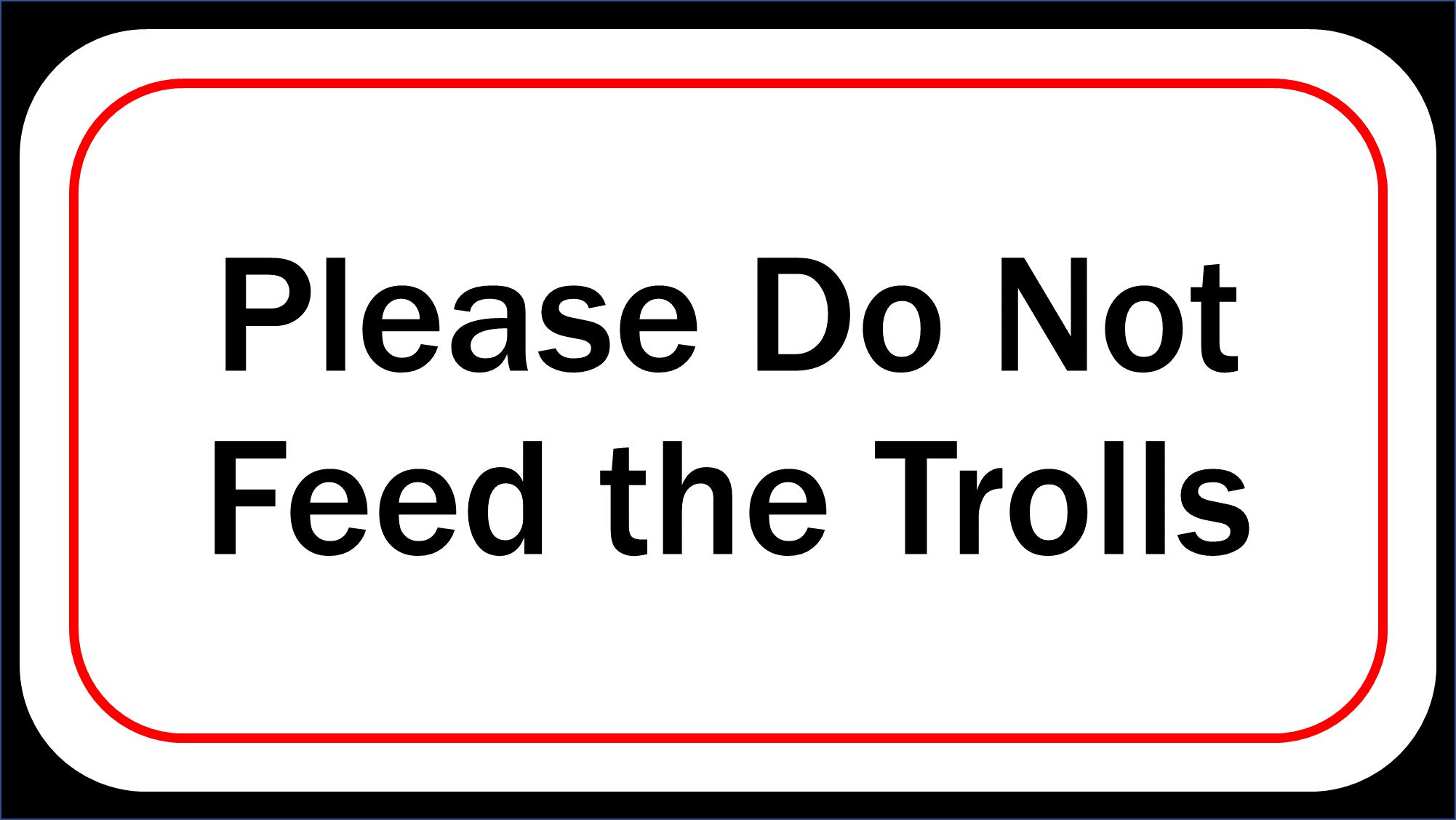A troll is someone that gains value from the act of causing others to lose value.
Okay, that was a bit dry sounding. How is this: a troll is someone that takes pride and joy at causing misery, anger, and distress in others; a troll derives pleasure by actively creating displeasure in others. However, a troll isn’t just schadenfreude; a troll gains value by being the direct cause of that schadenfreude. Thus, a troll is comprised of two major parts: emotional schadenfreude and personal responsibility.
Emotional Schadenfreude
Trolls operate primarily by causing others to lose value through emotional attacks. The goal is to derive humor and entertainment out of this activity for the troll and the troll’s audience (while an audience might amplify the enjoyment of trolling, it is not, however, necessary). Trolling is viewed as a game to essentially piss others off, and trolls perceive it as being “all in good fun” or “they deserve it anyway.”
Thus, because of the nature of how the troll gains value through emotional schadenfreude, trolling is typically limited to emotional value loss. There are also some additional reasons for this, which can vary from troll to troll. One of the most prevalent reasons, I think, is based on the perception that the non-physical nature of trolling lends it an air of innocence and blamelessness (“it’s all in good fun” or “they’re just words”). Furthermore, if trolling transgresses into physical acts of schadenfreude it seems to cross a vague, ill-defined, yet highly important line that separates the troll from just being a bully or sadist.
Personal Responsibility
A troll is someone that is directly involved in producing the emotional schadenfreude outcome. If someone enjoys the emotional schadenfreude, but aren’t involved in the actions that produce it, then they are simply an observer; they are a member of the troll’s audience.
Being personally responsible for trolling someone is an amplifier of value for the troll. There is a sense of pride and accomplishment in the act of trolling someone, and this direct involvement is important. However, when a troll is unable to be involved in producing the schadenfreude outcome it can reduce the value of that schadenfreude. For example, if someone wanted to be the troll but only ends up being part of the audience, then that want-to-be-troll might gain less value, or even lose value, from their lack of involvement (“I wanted to be the one that did it!”). Thus, personal responsibility is a key component of what makes a troll a troll.
The Audience
Unlike the requirement for emotional schadenfreude and personal responsibility, a troll does not require an audience to be a troll. However, I think that having an audience usually amplifies the effect the troll has. There is a form of validation and appreciation that comes from a troll-appreciative-audience. It feeds into the need to be respected, admired, and to even build a relationship with that audience. However, the audience can also negate a troll’s value, especially if the troll’s value was highly dependent upon the approval of the audience. Thus, the audience (such as society) can not only encourage trolling, but also discourage trolling as well.
A Rose by Any Other Name…
Trolling can serve a purpose, but that purpose isn’t always clearly good or evil. Trolling isn’t always just one person picking on another person. What this means is that moral value of trolling is dependent upon the circumstances involved and the outcomes it produces.
The word “troll” is a most often used as a pejorative word. As you think about what defines a troll, and the moral implications, consider what other words we might use to describe a “troll.” What words might be more slanderous? What words might be more praising?
For example, consider: flyting, spoken word battles, the invective genre of Greek and Roman poetry, libels of the Renaissance, satire, parodies, SNL, The Daily Show, The Colbert Report, politicians, comedians, etc. In other words, a troll by any other name would smell just as sweet (if you approve) or stinky (if you disapprove).
So, as you think about what it means to be a troll, keep diction in mind. And, the next time you spot a “troll” out to do business, notice what names (or lack of names) are employed. You might be surprised by how often trolling, whether by you or another person, plays a role in your life.
For more information about schadenfreude in conflict, check out "Value Dependency in Conflict."
Enjoy this article? Want to share your thoughts? Don’t forget to like, comment, or share before you leave. For more, check out davidwangel.com
